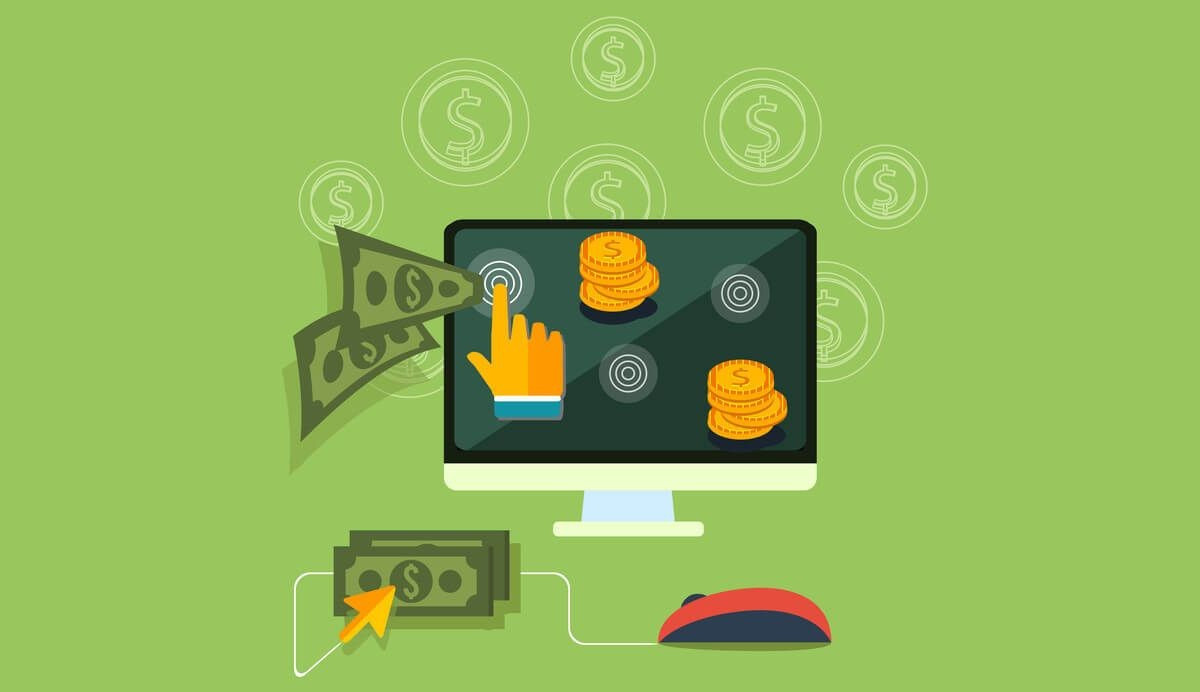Businesses have had to adapt their marketing strategies to reach audiences in the digital sphere. Digital marketing encompasses a variety of tactics designed to increase visibility, engage users, and convert leads into customers. Some of these include Search Engine Optimization (SEO), content marketing, social media marketing, email marketing, affiliate marketing, and, of course, Pay-Per-Click (PPC) marketing. Each strategy has its unique benefits and can be leveraged depending on the business's needs and objectives.
Introduction to Pay-Per-Click Marketing
Among these digital marketing strategies, PPC has become one of the most prevalent, especially for businesses seeking immediate results. PPC marketing is an advertising model that enables marketers to pay only when their advertisement is clicked by an online user. It's an efficient way of buying visits to your site, as opposed to earning those visits organically.
PPC marketing functions through a straightforward process. Businesses bid for ad placement in a search engine's sponsored links for specific keywords related to their business. For instance, if we bid on the keyword "PPC software," our ad might show up in the very top spot on the Google results page.
Whenever a user clicks on the ad, they're taken to your website, and you pay the search engine a small fee. If your PPC campaign is well-designed and runs smoothly, this fee will be trivial, because the visit is worth more to your business than what you pay for it.
Simply put, if you pay $3 for a click, but the click results in a $300 sale, then you've made a substantial profit. In the following sections, we will further explore the benefits and potential downsides of this popular marketing strategy.
How Pay-Per-Click Marketing Works
PPC marketing operates primarily through search engine advertising. Here's a simplified breakdown of the process:
- Keyword Bidding:
Businesses start by selecting relevant keywords for their industry, products, or services. These keywords are what potential customers might use in their search queries. The businesses then bid on these keywords, essentially telling the search engine that they want their ads to show up when someone searches for those keywords. - Ad Placement:
When a user performs a search with the chosen keywords, the search engine runs a complex algorithm to determine which ads will be displayed in the sponsored links section of the search results page, and in what order they will appear. The algorithm considers multiple factors, including the quality and relevance of the proposed ad text and associated keywords, as well as the size of the keyword bids. - Cost-Per-Click:
If the user decides to click on one of the displayed ads, they are directed to the advertiser's website, and the advertiser pays a fee to the search engine. This fee is the 'cost-per-click'. If the ads do not receive clicks, the advertiser doesn't pay anything.
Benefits of Pay-Per-Click Marketing
PPC marketing comes with a host of benefits that make it a popular choice for businesses of all sizes:
- Targeted Advertising
With PPC, you can target your ads to reach people at the right place and the right time. You can refine your audience based on their location, language, device, and even the time of day. - Immediate Impact
Unlike organic SEO, which requires time to build, PPC offers immediate visibility on search engine results pages. This makes it particularly useful for new websites or businesses in competitive industries. - Measurable Results
With tools like Google AdWords, you can measure everything related to your PPC campaign, from the number of clicks and views to profits and conversion rates. This data helps you understand what is working and where adjustments are needed. - Control Over Advertising Costs
In PPC marketing, you have full control over how much you spend on ads. You can set your budget to your comfort level and even adjust it based on the performance of your campaign. - Improved Brand Recognition
With more visibility on search engines, users are more likely to recognize and become familiar with your brand. Even if they don't click on your ad initially, the continuous exposure can lead to a future engagement.
Targeted Advertising
One of the most significant advantages of PPC marketing is its ability to target specific audiences. Advertisers can customize their PPC campaigns to reach users based on a variety of factors such as geographical location, language, device, and even time of day.
For instance, a local restaurant might target ads to users within a certain radius during dinner hours. This level of specificity helps ensure that your ads are being seen by the people most likely to be interested in your products or services, thereby improving the chances of conversion.
Immediate Impact
PPC marketing delivers an immediate impact. Unlike Search Engine Optimization (SEO), which can take months to show results, PPC ads can quickly secure a top position on the search results page. As soon as your PPC campaign is approved, your ads can start to appear and generate traffic to your website. This immediate influx of visitors can be especially beneficial for new businesses looking to establish themselves or for launching time-sensitive campaigns.
Brand Exposure
Even when users don't click on your ad, having your business name, logo, and services appear at the top of search results can increase brand recognition. This visibility ensures that users become more familiar with your brand over time, enhancing the likelihood they will engage with you in the future. This brand exposure is particularly valuable in highly competitive markets where establishing brand awareness can be challenging.
Competitive Advantage
PPC gives businesses a competitive edge, especially when their websites might not rank as highly organically. With a well-strategized PPC campaign, businesses can appear above their competitors on search engine results pages, gaining greater visibility and potentially attracting more clicks. Moreover, even if competitors also use PPC, a well-optimized campaign can help you outrank them.
Measurable and Trackable Results
PPC marketing is entirely trackable and measurable. Platforms like Google Ads or Bing Ads provide detailed metrics that allow you to see exactly how your campaigns are performing. You can track everything from the number of impressions and clicks your ad receives, to the number of conversions, the cost-per-click, and the overall return on investment. This data-driven approach enables businesses to adjust their strategies based on what's working and what's not, ensuring optimal use of their marketing budget.
The Drawbacks of Pay-Per-Click Marketing
While PPC marketing offers several benefits, it also comes with a few potential drawbacks. It's important to understand these challenges before deciding if a PPC strategy is right for your business.
Cost Considerations
One of the most significant considerations when it comes to PPC marketing is cost. Bidding on popular keywords can be expensive, particularly in competitive industries. Depending on the keywords you choose and the competitiveness of your market, costs can add up quickly, especially if your ads aren't converting as hoped. While it's possible to control your daily spending limit, a low budget might limit your ad visibility, impacting your overall results.
Time and Resource Intensive
Effective PPC management requires substantial time and resources. It involves regular monitoring, analyzing, and adjusting of campaigns to optimize performance. Businesses need to continually test and tweak their ads, try out different keywords, and refine their targeting to ensure the campaign remains profitable. Without a dedicated team or individual, managing a PPC campaign can become overwhelming.
Complexity of PPC Management
PPC marketing can be complex. From keyword research to bid management, ad creation, and analytics, PPC campaigns involve multiple elements that require expertise and understanding. The learning curve for managing PPC effectively can be steep, especially for those new to the field. Mistakes can be costly, both in terms of budget and lost opportunities.
Potential for Click Fraud
Click fraud is another potential risk associated with PPC marketing. This happens when individuals or bots repeatedly click on your ads without any intention of engaging with your business, causing you to rack up charges. Click fraud can rapidly deplete your budget and distort your data, making it harder to evaluate your campaign's success. While platforms like Google have mechanisms in place to detect and prevent click fraud, it's not entirely foolproof.
Despite these challenges, many businesses find that the advantages of PPC marketing outweigh the potential downsides, particularly when campaigns are managed effectively. As with any marketing strategy, it's crucial to consider your unique business needs, goals, and resources when determining whether PPC is the right fit for your business.
Is PPC Right For Your Business?
Determining if PPC is right for your business depends on several factors including your business size, industry, target audience, and marketing budget. Here's how you can break down these considerations:
- Business Size
Business size plays a role in the decision to utilize PPC. For small businesses and startups, PPC can provide a quick way to establish an online presence and compete with larger, more established companies. On the other hand, larger businesses can use PPC to fortify their existing online presence and capture a larger share of online traffic. - Industry
The industry your business is in can affect the success of a PPC campaign. Highly competitive industries can have high-cost keywords, which could make a PPC campaign costly. However, if your business operates in a niche industry, PPC could be a cost-effective way to drive traffic to your site, as there might be less competition for your keywords. - Target Audience
Consider where your target audience spends their time online. If they're most likely to use search engines to find products or services like yours, then PPC could be beneficial. It's important to understand your audience's online habits to ensure you're reaching them effectively. - Marketing Budget
Your available marketing budget will also influence the decision. PPC costs can add up quickly, especially in competitive industries. It's important to calculate the potential return on investment (ROI) before committing to a PPC campaign. Remember, the goal is to ensure that the value of the customer (lifetime value) exceeds the cost of acquiring that customer (cost per acquisition).
Case-by-Case Analysis
It's also worth considering specific use-cases:
- B2B vs B2C:
B2B companies might find that their audience does more research and takes longer to convert than B2C customers. In this case, a combination of SEO and PPC might be most effective, using PPC to capture leads and SEO to nurture them through the sales funnel. - Ecommerce vs Service Industry:
Ecommerce companies often benefit greatly from PPC because they can target high-intent keywords (like "buy running shoes online"). The service industry, on the other hand, may need to focus on broader keywords and utilize more geographic targeting.
The decision to use PPC should align with your overall business and marketing objectives. What's most important is choosing the strategies that are most likely to help you achieve your specific goals. If you're unsure, it can be beneficial to work with a marketing professional to help you make the best decision for your business.
Pay-Per-Click (PPC) marketing is a potent digital marketing strategy that can offer businesses immediate visibility, targeted advertising, and measurable results. It allows businesses to have greater control over their advertising spend and can contribute significantly to brand exposure and competitive advantage.
It's essential to consider potential drawbacks like cost considerations, the complexity of management, and the time and resources required for effective execution. There's also the need to stay vigilant against potential click fraud.
The suitability of PPC for a business varies and hinges on several factors, including business size, industry, target audience, and available marketing budget. Furthermore, specific use-cases like B2B vs. B2C or ecommerce vs. service industry can impact the effectiveness of PPC marketing.
If you're unsure about whether PPC is the right fit for your business, consider reaching out for a personalized consultation. Our experienced team at e-dimensionz Inc is to help, offering tailored advice based on your unique business needs and goals.




